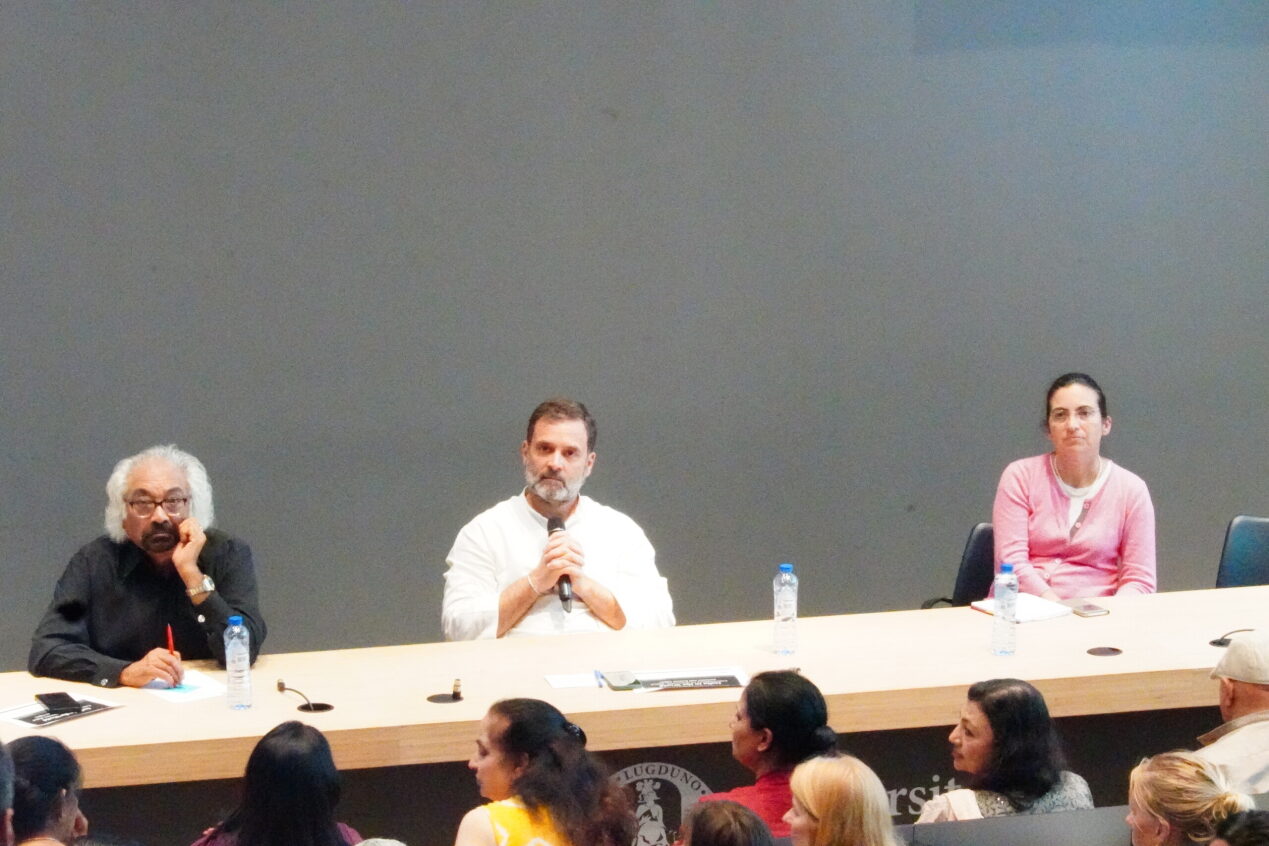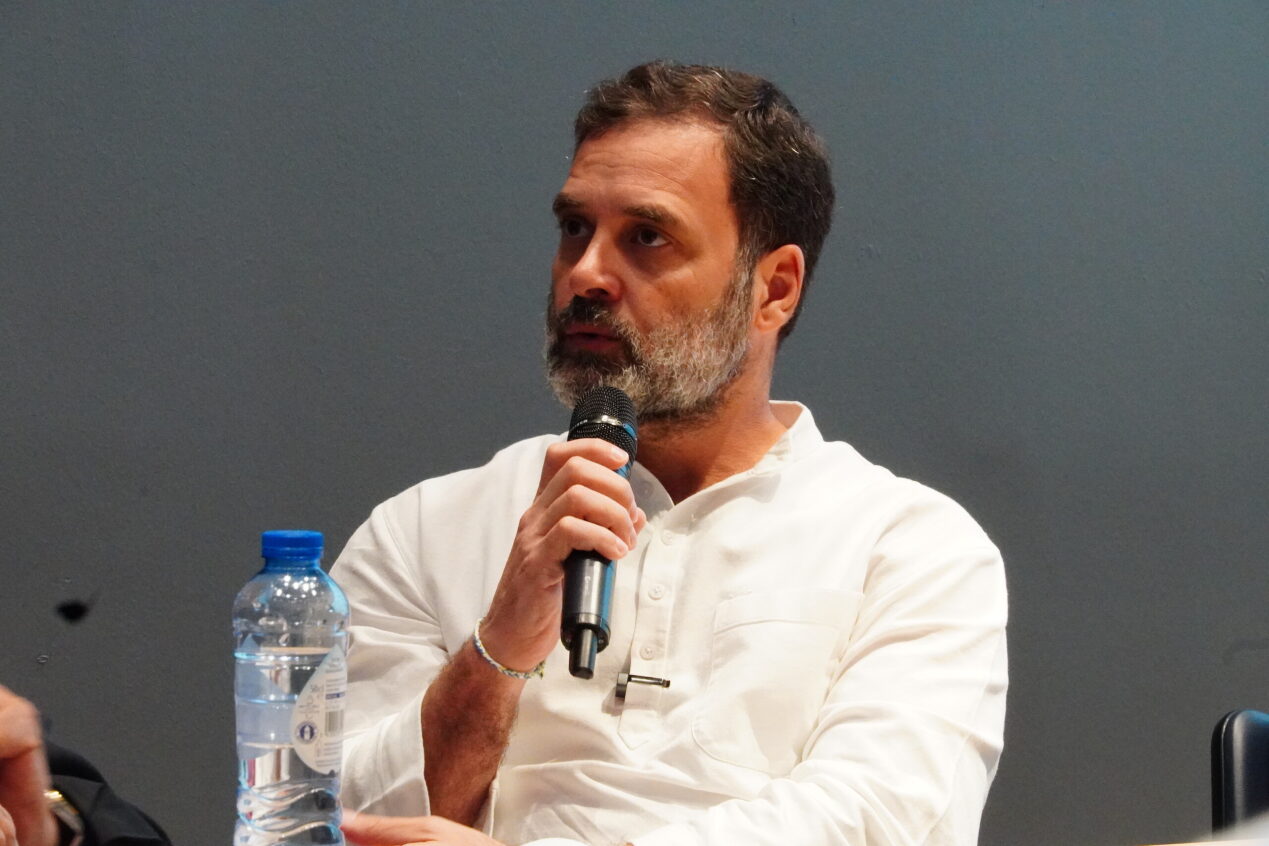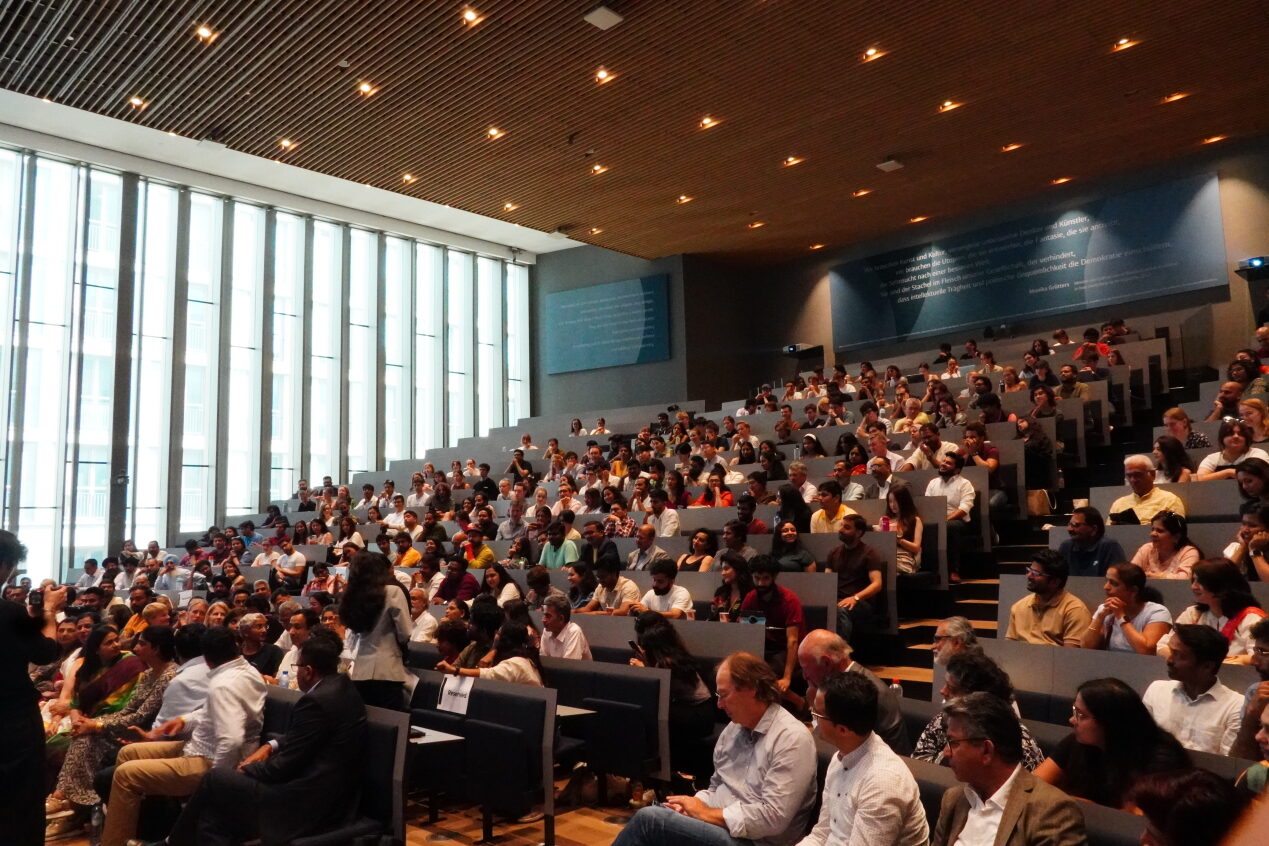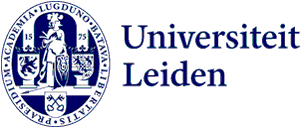
‘India in the World’: An Interaction with Rahul Gandhi and Sam Pitroda
Rahul Gandhi, former president of the Indian National Congress, was on the Hague Campus on 10 September. Gandhi was accompanied by his advisor, Sam Pitroda. Gandhi and Pitroda were co-hosted by the Leiden University Centre for International Relations (LUCIR), the University of Groningen and the student association Room for Discussion from the University of Amsterdam. The event was moderated by Dr. Vineet Thakur from the Institute for History and Prof. Jeanne Mifsud Bonnici from University of Groningen delivered the closing remarks.
Attended by nearly 500 students, academics and civil society members, the event was held in the format of a Question-and-Answer session. Gandhi and Pitroda were asked various questions about the state of India’s democracy as well as the country’s internal and external policies, including on Kashmir and Manipur. A strong critic of the Narendra Modi-led BJP government for its assault on freedom and democracy, Gandhi reflected on the irony that while he was speaking in universities abroad, none of the Indian universities would dare to host him under the current government.
A significant focus of the discussion was on his Bharat Jodo Yatra (Unite India March) in which walked a distance of over 4000 kilometers, covering the South-to-North breadth of the country. In his public pronouncements, Gandhi has placed great emphasis on the ‘politics of love’ as his response to the politics of hate by the right-wing Indian government. When asked about the electoral effectiveness of this approach, Gandhi was quick to respond that in the recent state elections in the state of Karnataka, his party had won in all sixteen constituencies which were covered in the yatra. The yatra had taught him, he added, that common suffering provided basis for a new politics of love.
He was less convincing, however, on how this politics of love translates into negotiating vast differences in people’s economic and social condition. The issue of caste, a social form of graded inequality, and its divisive hold on the Indian society belies any attempts to create a common cause.
-

-

Dr. Vineet Thakur -

Mr. Rahul Ghandi -

Mr. Sam Pitroda -

